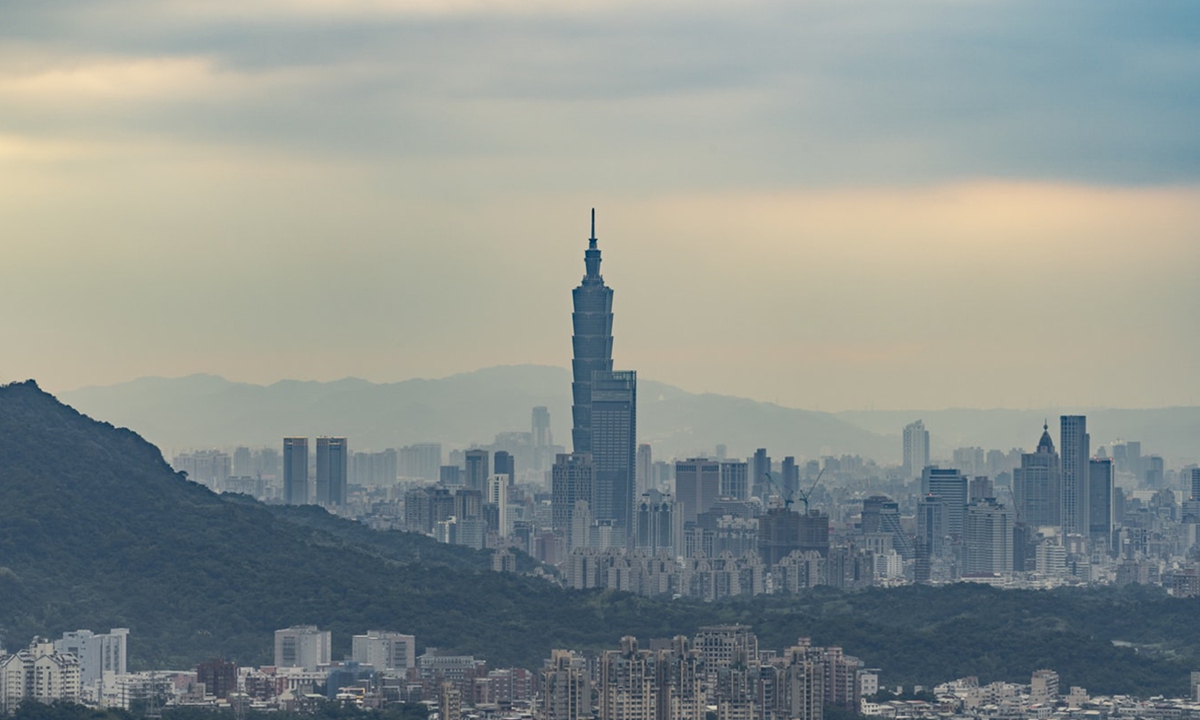
Taiwan Photo: Unsplash
Taiwan media outlets exposed an arms purchase scandal on Wednesday, with its severity and absurdity greatly stunning people on the island. Some of the island's main missiles were purchased by Taiwan's private manufacturers from Chinese mainland. After repackaging, they were "disguised as genuine American products," with a price difference of up to 100 times. The boss of one of the manufacturers involved turned out to be a "seller of cosmetics."
This once again proves that the so-called defense autonomy, which the DPP authority has spent a lot money on, is a remarkably expensive joke. No matter how much Taiwan splurges on defense, it will turn out to be a waste of money.
The National Chung-Shan Institute of Science and Technology (NCSIST), which is regarded as the highest military scientific research institution on the island, played a major role in the scandal. Chiu Kuo-cheng, leader of the defense authority of Taiwan, serves as the chairman of NCSIST. This displays the significance of the institution in the island's defense as well as the severity of the scandal.
The scandal mirrored the overall corruption and fragility of Taiwan island's defense system. The NCSIST has long ago been transformed into an independent administrative institution whose internal bidding process is neither transparent nor sufficiently supervised. Huge defense spending has provided opportunities for corrupt personnel within the Taiwan military and the DPP authority to line their own pockets. This has also become a motive for some people to exaggerate the "military threat" from the Chinese mainland.
There is no problem with buying parts from the Chinese mainland. Manufacturing in the Chinese mainland provides products and services to the entire world, and is widely favored for its high quality and affordable price. Even the Pentagon has been disclosed to have purchased parts from the Chinese mainland for advanced weapons. From this perspective, the Taiwan scandal shows that the quality of the Chinese mainland's weapons components is no lower than that of the US and they are much less expensive. When Taiwan island purchases weapons and other products from the US, it is, most of the time, a fathead.
The problem lies not in some middlemen "profiting from price differences," but in that Taiwan's defense system should not have deceived its people. And the deeper issue is that the money should not be spent in the first place.
Some Taiwan scholars have made a calculation: In the total budget of the DPP authority this year, the defense budget was NT$372.6 billion ($13.4 billion). If various "special budgets" are added, the total 2022 defense budget will reach a record NT$519.7 billion.
This is twice the economic development expenditure (NT$260.7 billion) in the total budget, higher than the spending on education, science and culture (NT$456.1 billion), and close to the level of social welfare spending (NT$601.8 billion). Among them, a five-year special budget of NT$240 billion has been criticized as an act of "intergenerational plundering" that equals taxing Taiwan's future generations.
In recent years, the DPP authority has been hyping the "military coercion" of the Chinese mainland on one hand and clamoring for "self-defense" on the other. It has continued to promote the research and development of self-made weapons under the pretext of "confronting the People's Liberation Army (PLA)." The projects that involve submarines, frigates, armored vehicles and anti-aircraft missiles are dizzying. What accompanies those are scandals of cheap work and embezzlement, as well as strong doubts about the frequent failure of helicopters and submarines on the island. Moreover, live missile drills hit fishing boats from time to time, and a large number of "strawberry soldiers" afraid of hardship and death have demoralized the army on the island. These have long been criticized on the island. The so-called self-defense is more and more like an eggshell that can be easily broken.
The NCSIST scandal is just another proof of the breakdown of the Taiwan army. That's because the Tsai Ing-wen authority has never seriously thought of building an army that could "confront the PLA." They know that this will just be daydreaming. The Chinese mainland's military advantage is overwhelming and unquestionable. The DPP authority still puts so much effort into developing "national" defense as a cunning political calculation. It is using this to hype the "threat" of the mainland to intimidate the Taiwan people, and pretend to be pitiful to the international community. Behind the words of "self-defense" and "fighting to the end," the DPP authority is wagging its tail to the US, Japan and other countries: "I've worked so hard. Please come to my rescue."
However, in order to play such a tricky play, the DPP authority has unscrupulously squandered the hard-earned money of the ordinary people, turning a blind eye to profit-grabbing nepotism. No one knows how much they have benefited from exploiting the Taiwan people, but what is clear is that if they continue to blatantly reject the 1992 Consensus and follow the path of "rejecting reunification by force," they will eventually become a nail that can easily be pulled out by the PLA.




